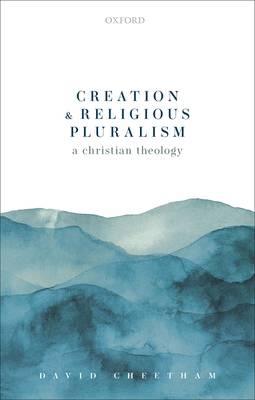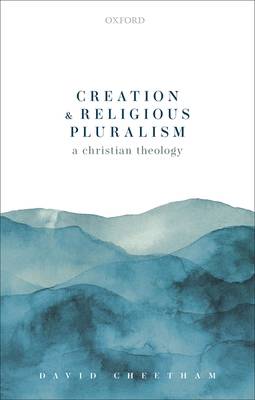
- Retrait gratuit dans votre magasin Club
- 7.000.000 titres dans notre catalogue
- Payer en toute sécurité
- Toujours un magasin près de chez vous
- Retrait gratuit dans votre magasin Club
- 7.000.0000 titres dans notre catalogue
- Payer en toute sécurité
- Toujours un magasin près de chez vous
Description
In the well-worn debates about religious pluralism and the theology of religions there have been many different rubrics used to account for, comprehend, or engage with the religious other. This book is chiefly a work of Christian theology and seeks to bring the doctrine of creation and the theology of religions into dialogue and in so doing it comes at things from a different direction than other works. It contains an extensive exploration of the doctrine of creation and asks how it might intervene distinctively in these discourses to produce a new conceptual and practical topography. It will consider inter-religious engagement from the perspective of the doctrine of I creatio ex nihilo /I that forms the dominant view in the Jewish, Christian, and Islamic traditions. The book pays close consideration to anthropology (i.e. creaturehood), the quotidian and wisdom, the idea of 'sabbath, ' human action and work, and vivifying the immanent through a consideration of some representative phenomenologists. The book will develop these ideas in a more practical direction by considering sacraments and rituals in the public sphere as well as attempting to describe the kind of 'creational politics' that might bring traditions into dialogue. Whilst these themes challenge more conventional ways of considering relations between religions, such themes - because they are different from concerns commonly found in the literature - can also be profitably engaged with across the spectrum of opinion (i.e. exclusivist or pluralist etc.) Thus, whilst the position adopted in this work is I creatio ex nihilo /I part of the motivation is to review the ways in which this focus helps to broaden rather than limit the discussion.
Spécifications
Parties prenantes
- Auteur(s) :
- Editeur:
Contenu
- Nombre de pages :
- 240
- Langue:
- Anglais
Caractéristiques
- EAN:
- 9780198856665
- Date de parution :
- 20-10-20
- Format:
- Livre relié
- Format numérique:
- Genaaid
- Dimensions :
- 142 mm x 218 mm
- Poids :
- 430 g

Les avis
Nous publions uniquement les avis qui respectent les conditions requises. Consultez nos conditions pour les avis.






